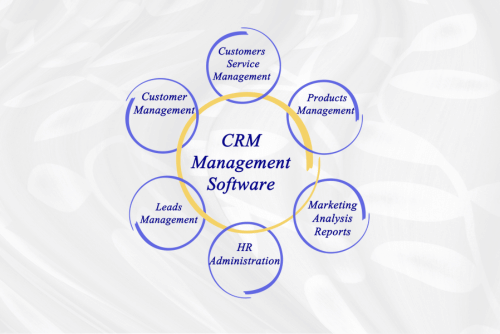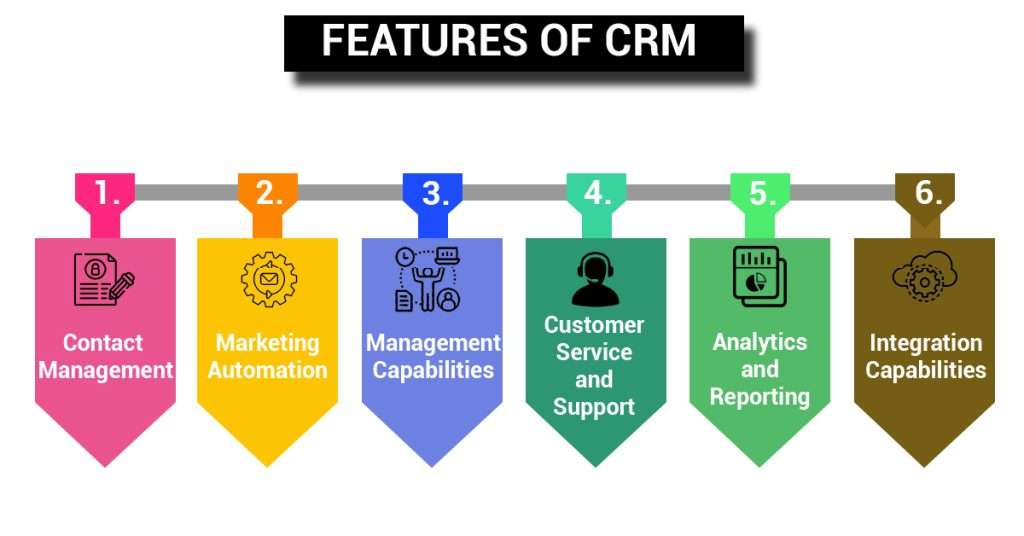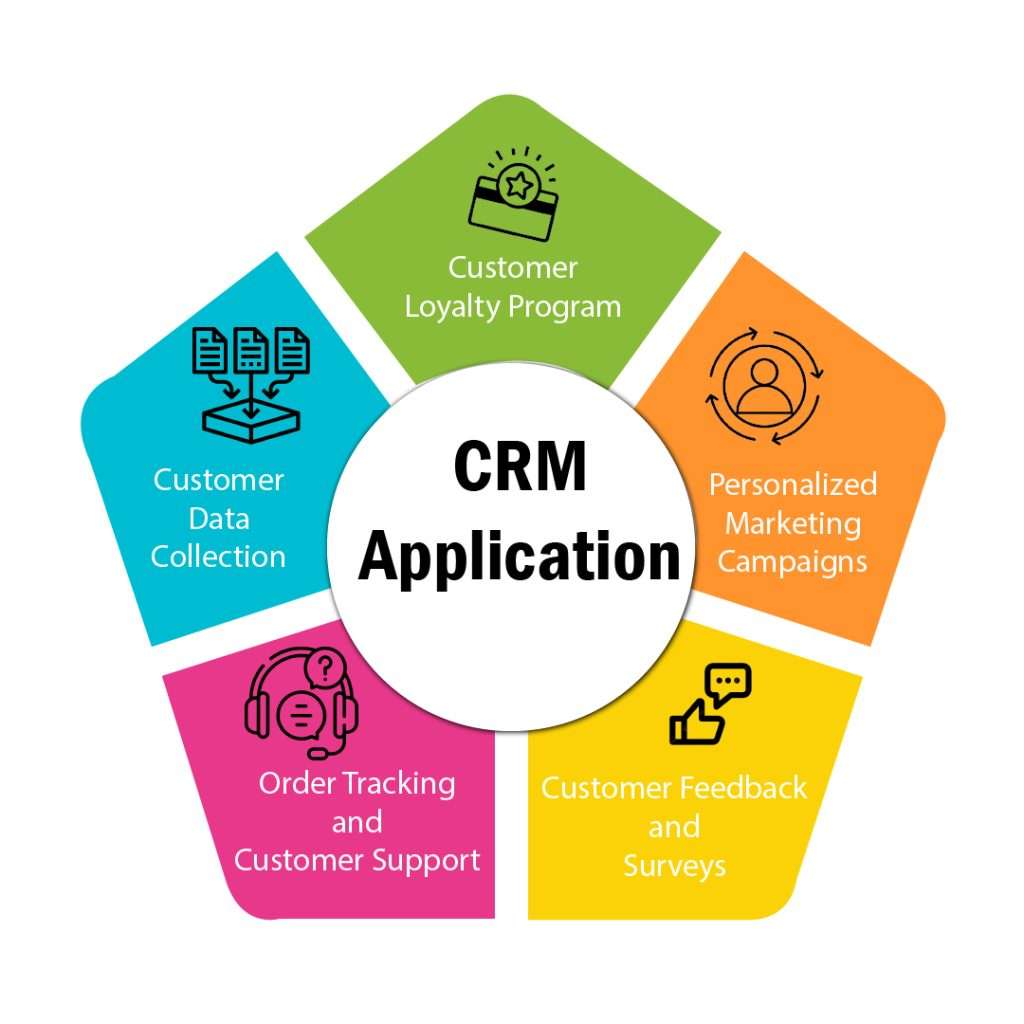What is CRM? Its Meaning, Features and Applications
Understanding What is CRM?
A CRM can be defined simply as follows.
In today’s highly competitive business environment, managing client relationships is essential as well as challenging for long-term growth and success. Customer relationship management (CRM) is useful in this situation.
CRM (Customer Relationship Management), is a powerful tool that helps businesses to manage and analyze their interactions with current and potential customers. By utilizing CRM software, companies can streamline their sales, marketing, and customer service processes, ultimately improving their overall customer satisfaction and loyalty. The idea is straightforward: Improve business ties in order to build your company. A CRM system allows businesses to stay connected to their consumers, reduce procedures, and increase revenue.
CRM software is designed to store and organize large amounts of customer data, including contact information, purchase history, and interactions across various channels. With this consolidated view, businesses can better understand their customers, personalize their interactions, and anticipate their needs. CRM software also enables businesses to track and manage leads, automate sales processes, and generate sales reports.

Understanding the Key Feature of CRM to be Considered for Business Success:
The way organisations handle their connections with clients has been completely transformed by Customer Relationship Management (CRM) Software. CRM has developed into a tool and feature for businesses of all sizes thanks to its extensive set of tools and functions.
1. Contact Management:
One of the most prominent features of CRM is it allows businesses to centralize customer data, including contact information, purchase history, preferences, and interactions. ability to centralize customer data. The days of scattered data over multiple spreadsheets and papers are long gone. With CRM, businesses can store and access all customer information in a single, organized database. Employees can then communicate with customers in a personalized and targeted manner since they have a comprehensive understanding of each one’s preferences and purchasing history.
2. Marketing Automation:
CRM also offers powerful sales automation features. From lead generation to deal closure, CRM streamlines the entire sales process. It allows businesses to track leads, manage pipelines, and automate repetitive tasks, freeing up sales teams to focus on building relationships and closing deals.
3. Management Capabilities:
Another important feature of CRM is its powerful contact management capabilities. CRM systems provide a centralized platform for managing contacts, including customer profiles, communication history, and follow-up tasks. This ensures that no opportunities are missed and that customers receive timely and relevant communications.

4. Customer Service and Support:
Customer service is another area where CRM shines. With CRM, businesses can efficiently manage customer inquiries, track support tickets, and provide timely resolutions. By having a complete view of customer interactions, businesses can offer personalized and efficient customer support, leading to higher customer satisfaction and loyalty.
5. Analytics and Reporting:
CRM can provide valuable insights through its reporting and analytics capabilities. Businesses can generate customized reports and dashboards that provide a clear picture of sales performance, customer behavior, and marketing campaigns. These insights enable businesses to make data-driven decisions and optimize their strategies for better results.
6. Integration Capabilities:
CRM offers seamless integration with other business tools and applications. Whether it is email marketing, e-commerce platforms, or social media, CRM can be integrated with various systems to create a unified and efficient workflow.
Applications of CRM
A CRM system improves everyone’s ability to manage the external contacts and relationships that drive success, whether in sales, customer service, business development, hiring, marketing, or any other line of business. The basic application of the implementation can be understood with the help of a business related example.
Let’s imagine a small e-commerce store called “GNASBA Store” They sell various electronic gadgets and want to improve their customer relationships to drive repeat purchases and customer loyalty. GNASBA Store decides to implement a CRM system to help them achieve this goal.

Customer Data Collection: GNASBA Store starts by collecting customer data through various touch-points such as their website, email newsletters, and social media channels. They gather information like customers’ names, email addresses, purchase history, and preferences.
Personalized Marketing Campaigns: With the CRM system, GNASBA Store can segment their customer based on their preferences, past purchases, and browsing behavior. They can then create personalized marketing campaigns tailored to each customer segment. For example, they can send targeted emails with product recommendations based on customers’ previous purchases or offer exclusive discounts on items they have shown interest in.
Customer Feedback and Surveys: GNASBA Store uses their CRM system to send post-purchase feedback requests and surveys to customers. By gathering feedback on their products, services, and overall shopping experience, GNASBA Store can identify areas for improvement and make necessary adjustments to enhance customer satisfaction.
Customer Loyalty Program: GNASBA Store implements a customer loyalty program through their CRM system. They can track customers’ purchase history, reward them with points or discounts for their loyalty, and send personalized offers to encourage repeat purchases.
Order Tracking and Customer Support: When a customer places an order, GNASBA Store’s CRM system automatically updates the order status and sends notifications to the customer. If a customer has any inquiries or issues regarding their order, they can contact GNASBA Store’s customer support team. The CRM system helps track and manage these customer interactions, ensuring prompt and satisfactory resolutions.
In today’s highly competitive business environment, managing client relationships is essential as well as challenging for long-term growth and success. Customer relationship management (CRM) is useful in this situation.
CRM (Customer Relationship Management), is a powerful tool that helps businesses to manage and analyze their interactions with current and potential customers. By utilizing CRM software, companies can streamline their sales, marketing, and customer service processes, ultimately improving their overall customer satisfaction and loyalty. The idea is straightforward: Improve business ties in order to build your company. A CRM system allows businesses to stay connected to their consumers, reduce procedures, and increase revenue.
CRM software is designed to store and organize large amounts of customer data, including contact information, purchase history, and interactions across various channels. With this consolidated view, businesses can better understand their customers, personalize their interactions, and anticipate their needs. CRM software also enables businesses to track and manage leads, automate sales processes, and generate sales reports.
GNASBA Store can successfully manage client interactions, personalize marketing activities, provide efficient customer service, and nurture long-term customer connections by deploying a CRM system. This enables them to provide a great customer experience and increase customer loyalty, which leads to corporate success.
Remember that this is only a basic illustration of how a CRM tool could assist a small e-commerce firm. In actuality, CRM systems provide a wide range of features and functionalities that may be tailored to the individual requirements of various enterprises.
Find out what your business can gain from a cloud-based CRM.
CRM technology allows you to keep track of everything about your consumers and future customers in order to develop strong relationships with them. CRM used to be all about sales, but not anymore. CRM is for every department, including sales, marketing, service, commerce, and information technology.
A fantastic CRM enables you to accomplish incredible feats.
It centralizes all of your critical customer information and company data in one place, ensuring that your employees have the proper information to offer simple, connected experiences that meet the expectations of your customers.
A CLOUD-BASED CRM PLATFORM PROVIDES YOU WITH:
An effective CRM enables firms to concentrate on their customers and unites everyone under a common goal.
- Software upgrades that are performed automatically
- Scalability and low cost
- Enhanced cooperation
- More rapid deployment
- Working from anywhere, on any device
Frequently Asked Questions (FAQ)
What is CRM?
CRM system is a powerful tool that helps your business manage and analyze its interactions with current and potential customers. By utilizing CRM software, you can streamline your sales, marketing, and customer service processes, ultimately improving customer satisfaction and loyalty. A CRM system allows businesses to stay connected to their consumers, reduce processes, and increase revenue.
Why is CRM Important?
A Sales CRM ler you enable businesses the chance to develop strong connections with their customers, increases customer satisfaction and enhances the efficiency of their sales and marketing efforts. It centralizes customer data, provides valuable insights, streamlines processes, and enables personalized interactions, ultimately driving growth and promoting long-term customer loyalty.
What does a CRM software do?
CRM (Customer Relationship Management) software helps businesses handle and evaluate customer interactions and data. It centralizes customer information, tracks communication history, automates tasks, and provides insights to enhance sales, marketing, and customer service efforts. It improves efficiency, fosters better customer relationships, and drives business growth.
Who is a CRM system for?
A CRM (Customer Relationship Management) system is for businesses of all sizes and in all sectors who want to manage and improve their customer relationships. It is beneficial for sales teams, marketing departments, customer service agents, and executives who want to streamline operations and increase customer satisfaction.
We can provide solutions that are customised to your requirements. Checkout our ready-made solutions for:
Learning Management
What is a cloud based CRM system?
A cloud-based CRM (Customer Relationship Management) system is a software solution that maintains customer information and offers CRM features on the cloud. It provides flexibility, scalability, and remote accessibility by enabling businesses to access and manage customer information, track interactions, and use CRM tools from any device with an internet connection.
